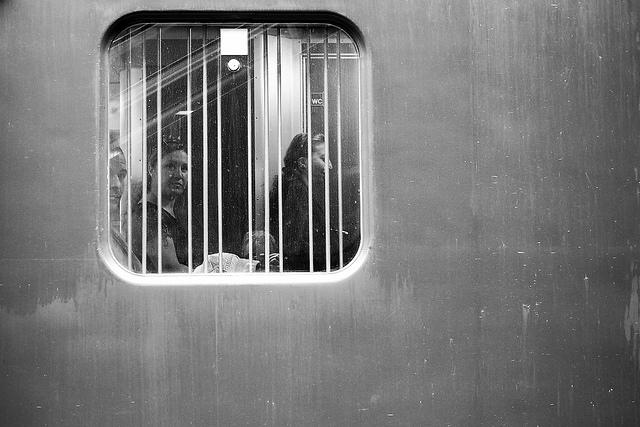The paradox of increased counter-terrorism spending
Posted By Anthony Bergin on July 7, 2015 @ 06:00
[1]Australia’s leading academic researcher on public opinion has produced a fascinating study that draws together public surveys of defence and national security attitudes.
The report by ANU’s Ian McAllister is part of a public consultation paper on the Defence White Paper that was released last week [2].
The finding that caught my attention was the level of concern held by Australians about being a victim of a terrorist attack expressed in polls from 2007 and 2009.
The report cites those polls to claim a widespread concern among the public that they, or a close family member, will be the victim of a terrorist attack, with between 44% and 49% ‘very concerned’ or ‘somewhat concerned’ about the prospect.
These conclusions add historical perspective to the findings of this year’s Lowy Institute poll [3], which revealed that the proportion of Australians considering themselves ‘very safe’ has plunged to its lowest level in the Lowy polls’ 11 year history to just 24%, down from 42% in 2010. Terrorism was the main factor here.
In recent years, we’ve increased public spending on counter-terrorism. After peaking in 2008–09 at around $800m per year, funding for counter-terrorism fell to just over $500m at the 2013–14 budget and was due to fall even further by 2017-18.
The funding situation changed not long after last year’s budget when the Abbott government, responding to Islamic State’s invasion of Iraq and growing concerns about the terrorist threat in Australia, announced a four-year, $630m package to improve capability in Customs, the Federal Police, the Australian Crime Commission, ASIO and others. Some of this money was allocated to the task of countering violent extremism (CVE).
The May 2015 budget continued the trend by giving another $296m to ASIS, $131m to help industry and government agencies pay for the metadata retention initiative, and a further $22m for CVE.
The spending was rounded out with another $750m [4] to fund the ADF deployment to Iraq, Afghanistan and the broader Middle East.
But poll findings point to something of a paradox here: the more we’re spending on national security, the more our community seems to feel apprehensive about its safety.
Yes, we have the problem of Australians joining the ranks of foreign fighters [5], and on the home front we’ve experienced the stabbing of police in Melbourne in September last year and the Sydney Martin Place siege in December. But fortunately we’ve not seen the major terrorist attacks here that have occurred in other developed countries.
It’d appear, however, that what the survey findings are telling us is that when it comes to terrorist incidents, the Australian public, perhaps like other western states, sets the bar at zero; we’re demanding that there simply won’t be an attack, even though Ian McAllister’s study reports that anything between one in three and two in three people believe that an attack on Australian soil is likely.
I suspect that one of the reasons why the public is feeling less secure is that while they might demand no attacks, they’re also aware that we’re going to have to be lucky all the time, whereas the terrorists only have to be lucky once [6].
I also suspect that with dramatic media coverage of lone-actor terrorist attacks, such as those we’ve seen in Canada, Tunisia and the UK , the Australian public [7] haven’t really factored in that our ‘security and law enforcement agencies have collaborated to disrupt the terrorist activities of numerous individuals and a number of larger-scale plots.’
With the alert level being elevated last September, warnings to the public that IS are coming ‘after us’, and extensive media coverage of IS’s barbarity, it’s not surprising that the community may have doubts about security on the home front.
The result: the public seems pretty happy to see more investments in public safety. And we’re also willing to make further privacy sacrifices to achieve security.
According to a recent Newspoll [8], (surveying 1,210 adults in April this year), 79% of Australians surveyed supported monitoring of social media to detect possible terrorist activity.
Given the level of public insecurity revealed by these polls, it’s unlikely we’re going to see leaders shift the community’s views on terrorism, even if they wanted to: indeed, if further attacks were to occur on home soil, it’d be ‘game over’ for any political leader who’d explicitly downplayed the threat beforehand.
Article printed from The Strategist: https://aspistrategist.ru
URL to article: /the-paradox-of-increased-counter-terrorism-spending/
URLs in this post:
[1] Image: https://aspistrategist.ru/wp-content/uploads/2015/07/14239205367_29f0a98ea4_z.jpg
[2] released last week: http://www.defence.gov.au/Whitepaper/docs/GuardingUncertainty.pdf
[3] Lowy Institute poll: http://www.lowyinstitute.org/publications/lowy-institute-poll-2015
[4] $750m: https://aspistrategist.ru/the-2015-16-national-security-budget-beyond-the-headlines/
[5] Australians joining the ranks of foreign fighters: https://www.aspistrategist.ru/events/regional-approaches-to-foreign-terrorist-fighters-and-counter-terrorism-financing-a-
[6] we’re going to have to be lucky all the time, whereas the terrorists only have to be lucky once: http://www.rand.org/blog/2008/11/terrorists-have-to-be-lucky-once-targets-every-time.html
[7] the Australian public: https://www.dpmc.gov.au/sites/default/files/publications/190215_CT_Review_0.pdf
[8] recent Newspoll: http://www.unisys.com.au/offerings/security-solutions/News%20Release/au-majority-of-australians-comfortable-with-monitoring-social-media
Click here to print.
